Kingsgrove Branch:
Schnap Electric Products Blog
Schnap Electric Products Blog Posts
Lockout Tagout Kit
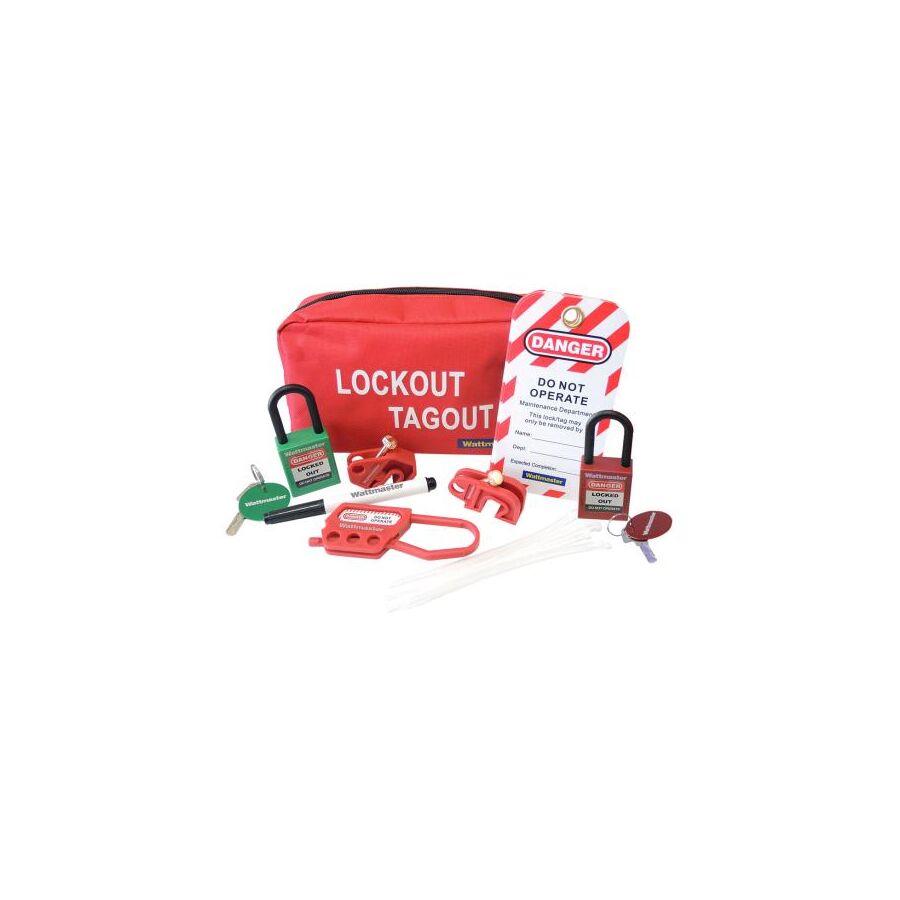
In Australian industry, safety is non-negotiable. The Lockout Tagout Kit is not just equipment—it’s a life-saving barrier between a worker and electrical hazard. Under AS/NZS 4836 and WHS regulations, de-energising circuits is mandatory for maintenance. A well-equipped Lockout Tagout (LOTO) kit is your first line of defence. This article covers the essential components, legal standards, and professional-grade options from SCHNAP Electric Products.
Why Lockout Tagout Kits Are Critical in Australia
Australia prohibits “live work” unless under strict diagnostic conditions. Energy must be fully isolated during maintenance, and only a proper LOTO procedure ensures this.
One Person, One Lock, One Key
This principle guarantees only the person exposed to danger can restore power—eliminating accidental re-energisation.
Key Components of a Professional Lockout Kit
1. Isolation Padlocks and Hasps Colour-coded (e.g., Red for Electricians, Blue for Fitters) Key-retaining cylinders prevent removal unless locked Multi-user access via isolation hasps (up to 6 padlocks) Built for impact resistance and non-conductive safety
2. Circuit Breaker Lockouts Fit both MCBs and MCCBs Use “Pin-In,” “Pin-Out,” or “Clamp-On” depending on breaker type Must be made from durable, non-conductive nylon or Xenoy
Using metal lockouts inside switchboards introduces arc-flash risks—SCHNAP’s nylon options eliminate this danger.
3. Lockout Tags: Communication is Critical A lock without a tag creates confusion. Each tag must include:
- Name of responsible technician
- Date and time of isolation
- Reason for lockout
SCHNAP’s heavy-duty PVC tags resist water, grease, and abrasion—ideal for mining, factories, and wet environments.
4. Compliance and Customisation Avoid low-quality imports. Only use equipment that meets Australian Standards for structural integrity and voltage handling.
Procure through trusted wholesalers to:
- Ensure compliance
- Access custom-keyed systems (Keyed-Alike or Master Keyed)
- Get tailored kits for site-specific needs
5. Final Step: “Test for Dead” Procedure Even after locking out, safety isn’t confirmed until tested.
- Attempt to turn the machine on
- Use a voltage tester to ensure zero potential
- Only then is the site considered safe to work
Why Choose SCHNAP Electric Products
SCHNAP supplies reliable, industrial-grade LOTO gear—engineered specifically for Australian switchboards and safety culture. Their lockout devices are robust, visible, and designed for real-world conditions.
SCHNAP padlocks and tags aren’t security gadgets—they’re safety essentials.
Conclusion
In the world of high-voltage maintenance, a Lockout Tagout Kit isn’t optional—it’s law. It embodies a safety-first culture and saves lives when properly implemented.
By choosing SCHNAP Electric Products and following WHS standards, your team can work confidently, knowing that every isolation point is secure, visible, and compliant.
Shunt Release
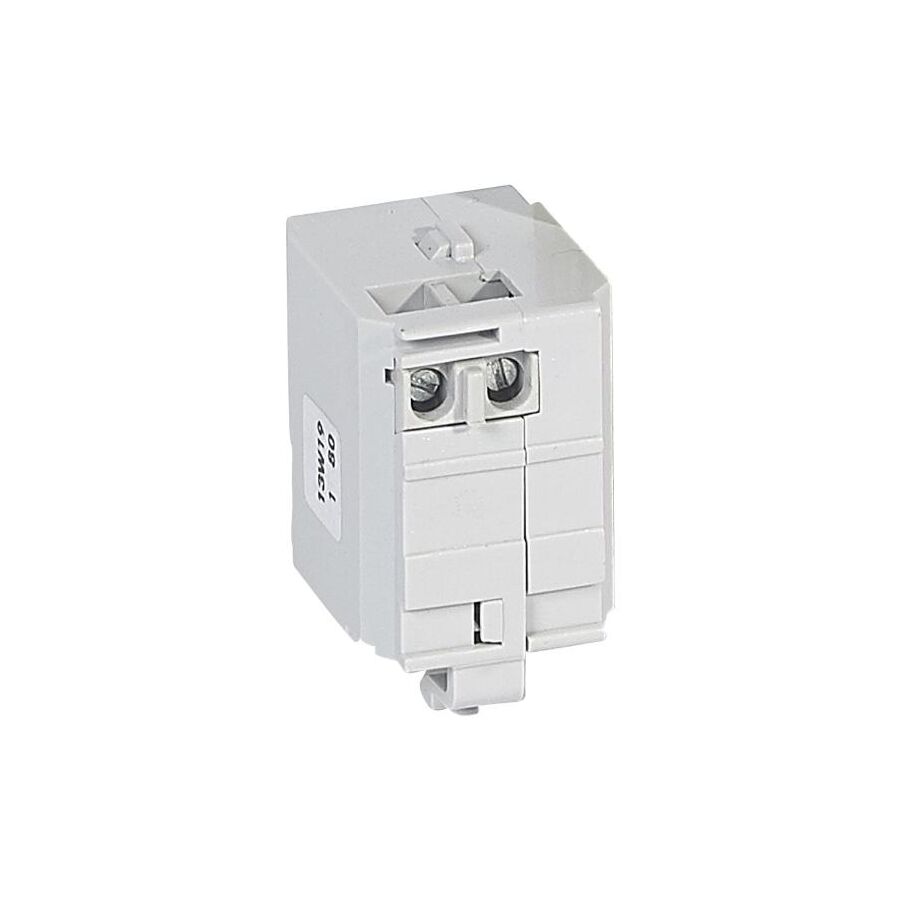
In commercial and industrial environments, electrical faults aren't the only reason for circuit isolation. Systems often need remote disconnection triggered by external events—like a fire alarm or emergency stop button. This is where a Shunt Release (also known as a Shunt Trip) plays a critical role.
A shunt release allows a circuit breaker to trip remotely by applying a voltage to a solenoid, which forces the breaker to disconnect the load. Unlike undervoltage releases that trip on power loss, a shunt release activates when power is applied, making it ideal for emergency stops and fire safety systems.
How It Works
A shunt release module clips onto the side of a Miniature Circuit Breaker (MCB) or Moulded Case Circuit Breaker (MCCB). When a voltage impulse is sent to the coil, a magnetic field drives a plunger that trips the breaker.
This system ensures rapid disconnection—critical in safety applications like HVAC shutdown during fire events or machinery emergency stops.
Fire & Emergency Integration
In buildings, Fire Indicator Panels (FIPs) often trigger the shunt release. When a fire is detected, the FIP sends a signal to the switchboard. The shunt release cuts power to air handling units to prevent the spread of smoke.
This method is preferred over contactors because the tripped breaker must be manually reset, ensuring a full inspection before reactivation.
Coil Protection & Clearing Contacts
Most shunt coils are rated for intermittent duty. If left powered for too long, they burn out. This can happen when an emergency stop button stays latched.
To prevent this, quality systems—like those from Schnap Electric Products—include a clearing contact. When the breaker trips, an internal microswitch disconnects power from the coil, even if the button is still pressed.
This extends the life of the shunt device and ensures safe operation.
Voltage Compatibility
Shunt releases are available in multiple voltage ratings, such as:
- 24V DC for control systems
- 240V AC for direct mains interlock
Using the wrong voltage can cause instant failure or non-operation. Schnap Electric Products clearly labels and supplies voltage-specific modules that integrate directly into their modular switchgear.
Emergency Stop Integration
In industrial settings, E-Stops need to physically open the power circuit, not just interrupt a control signal. A shunt release wired to the E-Stop guarantees visual confirmation that the breaker has tripped, preventing unintended restarts.
This method is ideal for Category 0 hardwired isolation, as required by many Australian workplace safety standards.
Installation & Compliance
Shunt release systems must follow AS/NZS 3000 (Wiring Rules). The installation involves fixed cabling, isolated plug bases in roof cavities, and protection against coil burnout.
A licensed electrician must handle all wiring and ensure compliance with RCM and type-testing standards. Schnap Electric Products offers datasheets, wiring diagrams, and full support to assist with compliant installations.
Supply Chain & Quality Assurance
Many low-cost, generic shunt devices on the market fail to meet Australian standards. They may jam mechanically, lack clearing contacts, or be incompatible with your breaker brand.
Sourcing from a professional electrical wholesaler guarantees:
- Brand compatibility
- RCM certification
- Technical support and datasheets
- Genuine Schnap Electric Products with safety features
Using mismatched parts voids switchboard certification and increases liability.
Conclusion
A Shunt Release is a vital component for integrating electrical protection with safety automation. It allows remote disconnection during fire, emergency, or system fault conditions. By choosing high-quality gear—like Schnap Electric Products—and installing it to code, you ensure safety, compliance, and peace of mind.
Whether for HVAC shutdowns, E-Stop circuits, or fire alarm integration, this silent safety device plays a critical role in keeping Australian facilities protected.
Undervoltage Release
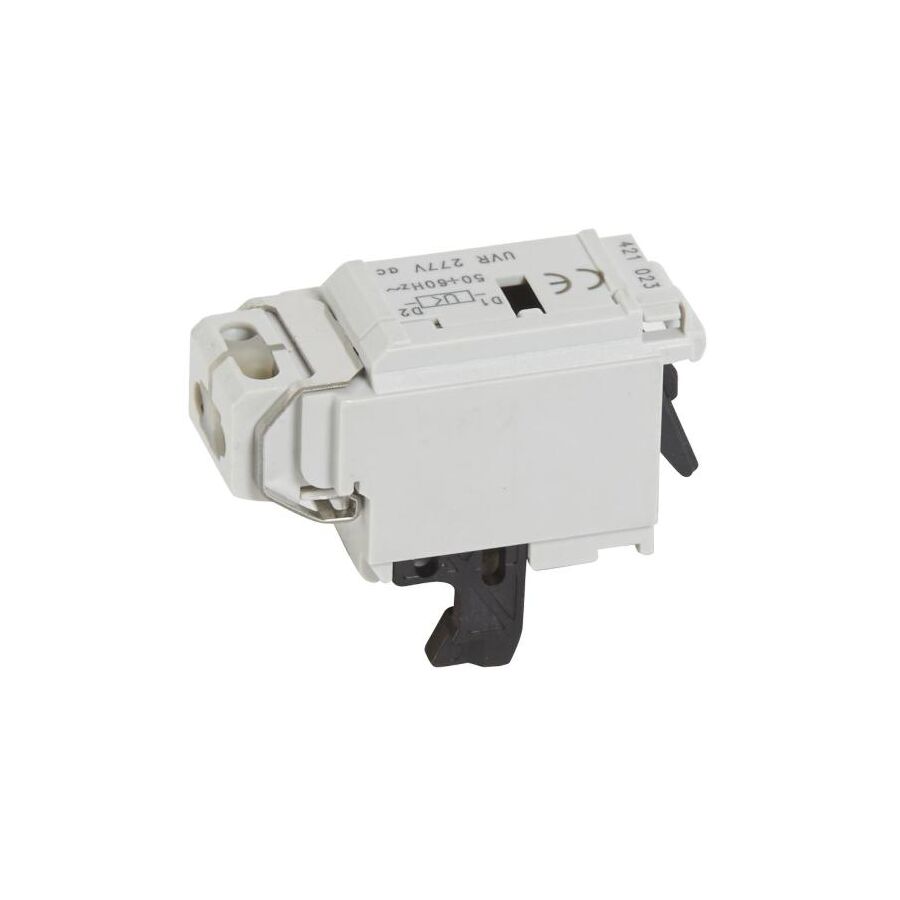
In industrial electrical engineering, protecting people matters more than keeping machines running.
Standard circuit breakers are designed to protect cables, not people. But in factories and commercial facilities, a sudden return of power can be deadly—especially if machines restart unexpectedly while someone is inspecting or repairing them.
To prevent this, professionals install an Undervoltage Release (UVR). This smart device turns a regular breaker into a fail-safe disconnector, cutting off power anytime voltage is lost. It ensures machines stay off until a manual reset is performed—just as Australian safety laws require.
Fail-Safe by Design
Unlike a shunt trip that requires power to disconnect, a UVR does the opposite.
It keeps the breaker closed only while power is flowing. The second voltage drops—even slightly—the device trips the breaker using spring-loaded force. If a wire comes loose or the site loses power, the UVR disconnects the machine instantly.
To restore power, a technician must manually reset the breaker—keeping things safe and deliberate.
Complies with AS 4024 Machinery Safety
Australian Standard AS 4024 says that industrial machines must not restart automatically after a blackout if it could be dangerous.
A UVR makes compliance easy. It ensures machines like table saws, presses, and conveyors don’t restart on their own. The operator must always reset the switch before the system reboots.
This is especially useful in small to mid-size machines that don’t use PLCs (Programmable Logic Controllers).
Protects Motors During Brownouts
Besides safety, undervoltage releases protect your gear.
During a voltage dip, electric motors pull more current to keep running. That overheats the windings fast—and can cause serious damage.
A thermal overload relay takes time to react. But a UVR trips instantly, shutting down power before the damage occurs. It’s cheap insurance for extending motor lifespan.
Seamless Fit with Schnap Electric Products
Schnap undervoltage releases are precision-engineered to clip directly onto their MCBs and MCCBs. No hacks. No mismatches. No compromise on safety.
They're available in:
- 240V AC – for mains-level monitoring
- 24V DC – for low-voltage control circuits
Always match the voltage correctly. The wrong unit can burn out or fail to trip when needed.
Emergency Stop Circuit Wiring
UVRs are ideal for wiring Emergency Stop (E-Stop) buttons.
These buttons connect in series with the UVR coil. If anyone presses an E-Stop or a cable gets cut, the circuit opens. The UVR trips the breaker, and the machine shuts down.
This design is self-monitoring. Even if the wiring fails, it fails in a way that kills power—making it far safer than shunt trips.
Only Use Verified Products
Cheap, unbranded UVRs may:
- Fail to trip in an emergency
- Cause nuisance tripping due to weak coil design
- Jam inside incompatible breakers
That’s why pros source from a reputable electrical wholesaler like SCHNAP Electric Products. Every UVR is matched to a certified breaker. The mechanical pins align perfectly. The products come with datasheets, RCM compliance, and real-world reliability.
Don’t mix brands. It’s not compliant and could void your switchboard certification.
Conclusion
An undervoltage release isn't just an accessory—it's a life-saver and a machine saver.
It makes sure that when the power fails, everything stays safely off.
By choosing quality gear like Schnap Electric Products, wiring it right, and following AS 4024, Australian installers can protect both people and property with confidence.
High Voltage Rescue Kit
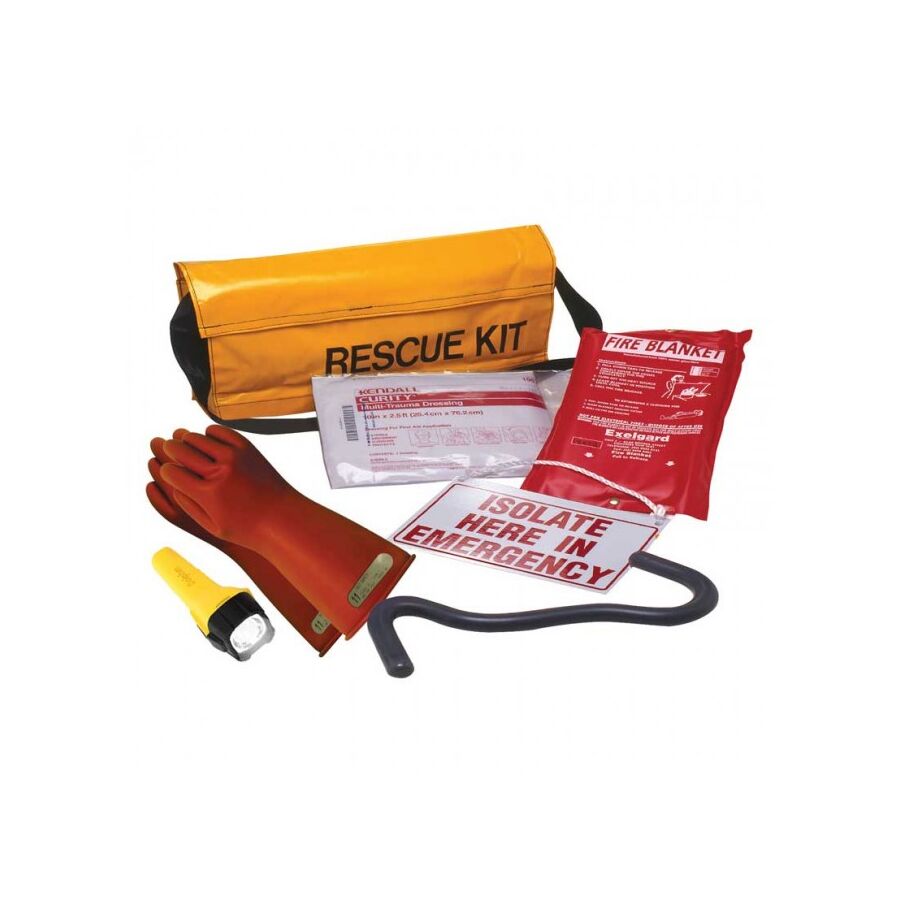
Operating industrial switchboards or substations exposes technicians to high-risk scenarios. Even with fault prevention systems, Australian WHS law and AS/NZS 4836 mandate that facilities prepare for worst-case events—including electric shock and arc flash.
A High Voltage Rescue Kit is not just a box of tools. It’s a legal requirement designed to save lives. In the event of electrocution, where a technician may become locked onto a live conductor, these kits allow non-contact rescue using insulated tools and trauma supplies.
Rescue Hook: Break the Circuit Without Risk
The rescue crook—also called the LV/HV shepherd's hook—is the centrepiece of any rescue kit. It enables mechanical separation of the victim from the energy source without contact.
During electrocution, muscle lock makes it impossible to let go. If a rescuer touches the victim, they risk becoming the new path to earth.
The hook is made from dielectric fibreglass, tested up to 45kV. Its curvature allows the rescuer to drag the victim clear of the arc flash boundary using safe leverage.
It must be stored in plain sight, in a way that allows access in under 10 seconds.
Insulating Gloves and Dielectric PPE
No rescue should begin without the proper Personal Protective Equipment.
The gloves inside a compliant kit are dielectric-rated latex, not standard riggers gloves. They must be matched to the system’s voltage class (0–4) and tested every 6 months.
Each use also requires a pre-check using the inflation method to detect pinholes.
Gloves should be stored in a protective canvas bag, alongside an insulating mat. The mat keeps the rescuer isolated from step potential—a lethal voltage difference that radiates across the floor.
Burns, Arc Flash and First Response
Arc flash temperatures can exceed 19,000°C, causing deep thermal burns within milliseconds. Rescue kits must include:
- Non-adherent burn dressings
- Hydrogel sheets
- A fire-resistant blanket
Standard bandages will stick to open tissue. Only medical-grade burn products prevent further trauma.
The fire blanket is used to smother burning PPE or clothing—a common effect of arc energy blasts.
Storage Cabinets from Schnap Electric Products
Switchrooms are hostile. Dust, vibration, and fluctuating temperatures degrade sensitive gear.
SCHNAP Electric Products solves this with:
- Powder-coated steel cabinets (high-vis yellow)
- Dust-proof and vibration-resistant design
- Integrated high-lumen torches for use in darkened rooms
These cabinets protect the dielectric strength of tools and the chemical integrity of trauma kits—making sure gear works when it matters.
Isolation Gear and Danger Tagging
Every rescue kit must include:
- Danger: Do Not Operate tags
- Padlocks for isolation
These tags prevent re-energisation during first aid.
Schnap’s isolation tags are tear-proof, water-resistant, and legible in harsh conditions. They support compliance with post-incident protocols under WHS laws.
Audit-Ready and Replenishable
Many facilities fail safety audits because their kits are expired or incomplete.
Rubber gloves deteriorate. Dressings dry out. Testing schedules are missed.
Professional safety officers procure kits and replenishment packs through verified electrical wholesaler—ensuring:
- Gloves have valid test dates
- Rescue hooks meet certified dielectric specs
- Kits are AS/NZS 4836 compliant
Never rely on generic toolboxes. Use kits built to save lives.
Conclusion: Preparation Saves Lives
In the high-voltage sector, failure isn't theoretical—it’s fatal.
A High Voltage Rescue Kit is the final barrier between injury and death. With trusted components from Schnap Electric Products, every technician is one step safer.
If you manage infrastructure, ensure your site is auditable, compliant, and life-ready—because when systems fail, the kit is all you have.
Test Tag Printer
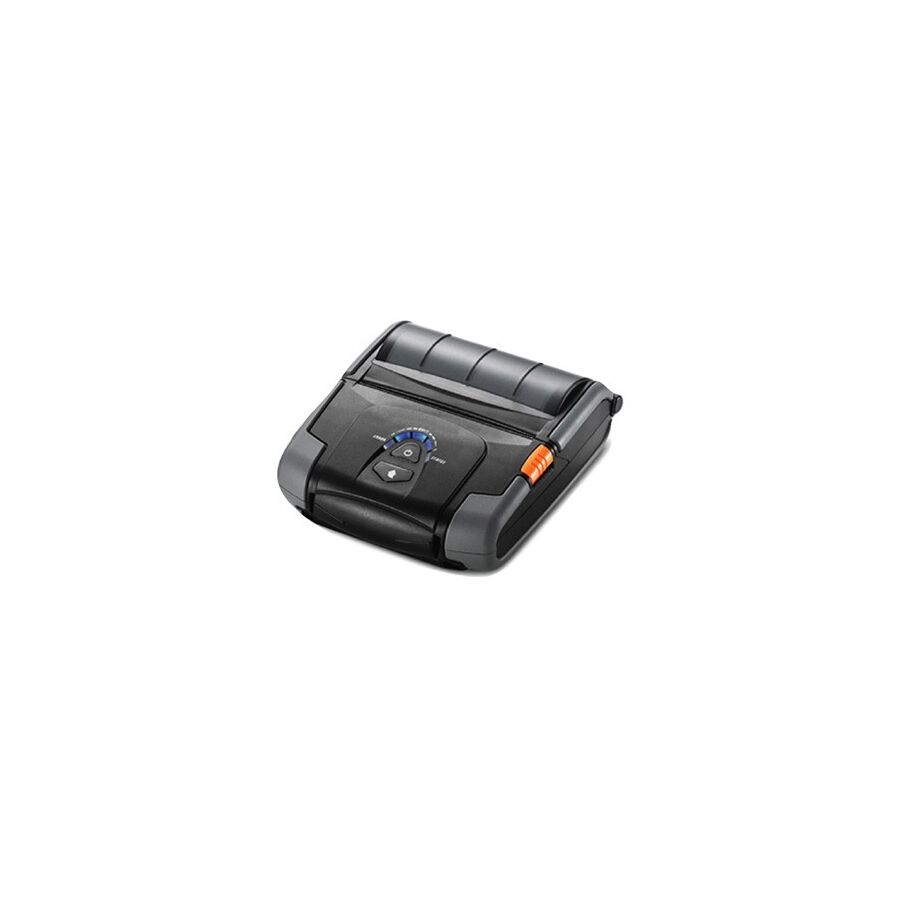
In Australia, electrical equipment safety is governed by strict workplace regulations. Under the WHS model laws and AS/NZS 3760:2022, any cord-connected electrical asset must be regularly tested and inspected. The test involves checking earth continuity and insulation resistance. But just as important as the test itself is how it’s recorded.
Handwritten test tags are no longer considered reliable. Ink fades. Handwriting becomes illegible. Details can be missed. Today, the standard has shifted to digital test tag printers that produce clear, compliant, and long-lasting records.
Why Manual Tags Are Failing
Handwritten tags have too many weaknesses. In a busy or sun-exposed worksite, ink can fade quickly, especially if standard markers are used. Retest dates or license numbers may be smudged or unreadable. If a tag becomes illegible, the equipment is considered untagged and non-compliant.
A digital tag printer avoids these risks. It connects directly to a Portable Appliance Tester (PAT), receives data like pass/fail status, test date, and retest date, and prints a clear, structured label with no risk of transcription error.
Thermal Transfer: Built to Last
Low-grade printers use heat-sensitive paper, the kind used in receipts. These fade or blacken when exposed to heat, light, or friction. They’re cheap but not built for construction, mining, or industrial use.
High-quality test tag printers use thermal transfer technology. A heated printhead bonds resin to synthetic labels, creating durable tags that resist water, UV light, chemicals, and rough handling. Whether testing tools on a dusty job site or cabling in a server room, these tags stay legible throughout the full retest interval.
QR Codes, Asset History, and Security
Modern tags can include barcodes or QR codes. These link directly to a cloud database, showing the asset’s full testing history. This makes it easy to manage records, verify retesting schedules, and confirm that tags belong to the correct equipment.
This is especially useful for companies managing large fleets of tools and leads. It prevents "tag swapping" where a compliant tag is moved to another item. Each tag is uniquely linked to the tested asset. For example, with industrial boards or extension leads from Schnap Electric Products, every test result is traceable to a serial number.
Mobile Apps and Workflow Integration
Tagging has evolved beyond pen and paper. Technicians now use mobile apps on phones or tablets to control the process. The printer pairs with the device wirelessly, prints on command, and stores data in the cloud. The technician never has to touch a pen or paper.
Companies can customise the tag with a logo, phone number, or other business info. If a tag is damaged on-site, a technician can print a replacement without needing to repeat the test.
Why Wholesalers Matter
Not all printers are suitable for heavy-duty use. Consumer label makers often lack battery life or the ability to handle high volumes. Professionals rely on trusted wholesalers who know what works on real job sites.
These suppliers ensure the test tag printer is compatible with the PAT tester, and they provide the right consumables — synthetic tags, strong adhesive, and industrial-grade resin ribbons. With support from a supplier like Schnap Electric Products, the whole system runs smoothly.
Conclusion
Digital test tag printers are no longer optional — they’re essential. They replace guesswork and risk with clarity and consistency. With thermal transfer durability, barcode tracking, mobile integration, and support from experienced wholesalers, the tagging process becomes professional, defensible, and efficient. It’s a key step toward safer workplaces and stronger compliance.
Portable Burns Station

In Australian heavy industry, thermal injury is a real and constant threat. Electrical arcs, overheated tools, and chemical burns all pose risks. Even with strong safety protocols in place, incidents can still happen. That’s why WHS law demands more than prevention—it requires a fast and specialised emergency response when things go wrong.
Standard first aid kits aren’t built for this. Burns need urgent cooling and careful handling, not just gauze and antiseptic. That’s why Portable Burns Stations have become critical infrastructure in high-risk environments. They’re no longer a bonus—they’re a compliance essential.
Why Hydrogel Matters
When a burn occurs, damage continues even after the heat source is gone. The skin retains thermal energy, and without cooling, the injury deepens. Time is tissue.
Running water isn’t always available on a job site, especially when the worker is immobile. Hydrogel solves this. It’s made up of over 90% water in a gel base, applied straight to the wound. It cools through evaporation, pulling heat from the skin gently—without causing further damage. It also provides fast pain relief by covering exposed nerves, unlike ice or cold water which can worsen injury by constricting blood flow.
Arc Flash and Full Coverage Capability
An arc flash can hit 19,000°C in milliseconds. The burns can be widespread and severe. In these cases, tiny bandages from standard kits are useless.
Burns stations are stocked with large gel dressings, face-specific masks, and full-limb wraps. They’re built to treat major trauma fast, not minor scrapes. This capacity is vital to reduce the risk of infection—the second-biggest danger after the burn itself.
Every second counts, and these stations act as trauma stabilisers until professional help arrives.
Non-Adherence for Pain-Free Removal
Removing a dressing can be just as painful as the injury itself—especially if the material sticks to raw tissue. That’s why every component in a professional burns station is designed not to stick.
Hydrogel dressings lift off easily. This reduces trauma and speeds up hospital care. It also allows medical staff to assess injury depth without tearing newly forming skin. This is what separates a medical-grade burns station from a basic consumer first aid box.
Built for Harsh Environments
Workshops are dirty. Dust, oil, metal filings—none of these mix well with sterile dressings. A burns kit must be stored safely.
That’s where Schnap Electric Products comes in. Their steel enclosures are built for industrial use. They keep emergency kits clean, visible, and protected from physical damage. Schnap also offers emergency lighting—critical when power fails. A burns station lit by a Schnap emergency light is easy to find, even in total darkness.
True Portability in Action
“Portable” means it goes to the injured worker—not the other way around. Burns kits are wall-mounted but can be removed in seconds. Quick-release brackets or handles allow the responder to grab the kit and run.
Inside, every item is clearly laid out. No clutter. No digging. Just fast access to life-saving dressings when they’re needed most.
Compliance and Shelf-Life Management
Hydrogel expires. It dries out. It becomes useless. Many sites get caught during audits with expired safety gear.
Sourcing burns stations through a professional electrical wholesaler solves this. They ensure kits are fresh, compliant, and meet Australian TGA standards. They also supply top-up packs so one used dressing doesn’t mean replacing the entire unit.
A good supplier doesn’t just sell—they support the entire lifecycle of your kit.
Conclusion
A Portable Burns Station isn’t a luxury—it’s your frontline defence against irreversible injury. It offers real treatment, real speed, and real compliance. By using hydrogel cooling, ensuring portability, and protecting the unit with heavy-duty enclosures from Schnap Electric Products, safety managers can meet WHS requirements and genuinely protect their teams.
Because when burns happen, every second matters—and the right response starts with the right equipment.
Portable Eye Wash Station
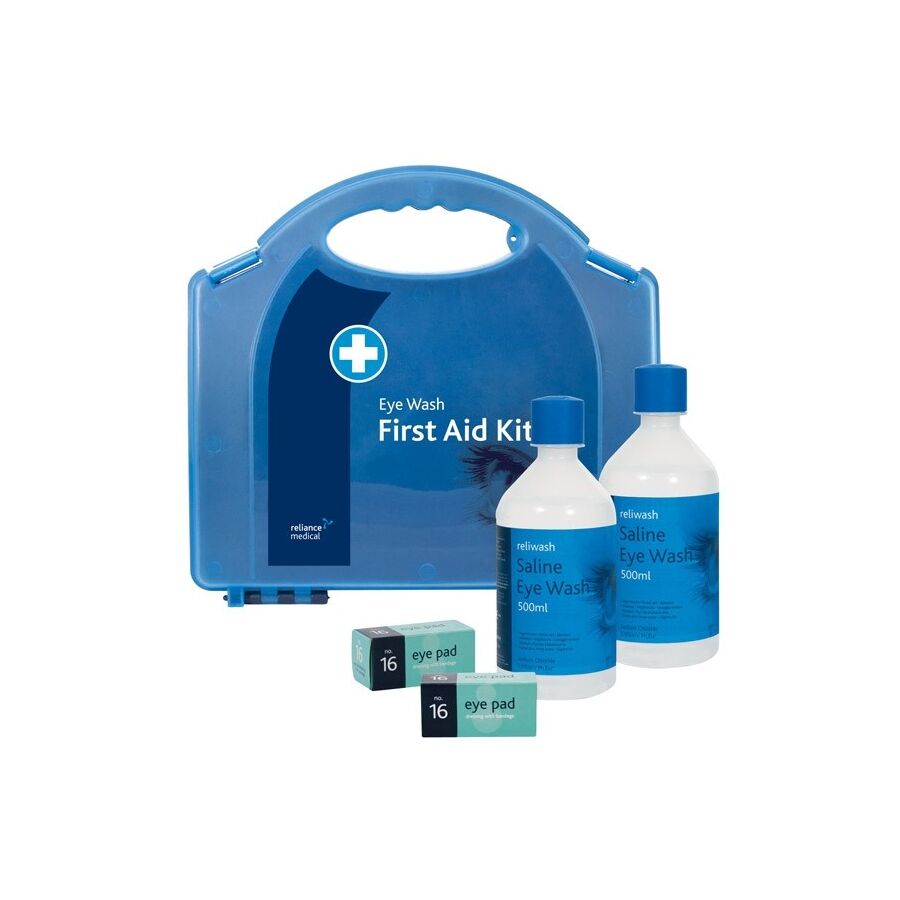
Across Australia’s industrial zones—from data centres to remote mine sites—the risk of eye injury from chemicals or flying particles is a constant threat. Whether it’s a splash of acid or airborne debris, the first 10–15 seconds after exposure can decide whether an injury leads to recovery or permanent vision loss.
But what happens when there’s no plumbing nearby? Installing mains water lines in remote areas can be costly or impossible. The solution is a Portable Eye Wash Station—a self-contained, safety-compliant unit that delivers immediate flushing, regardless of location.
Meeting AS 4775 Standards
Australia’s AS 4775 standard sets strict rules for emergency eye wash systems. A compliant unit must:
- Flush at least 1.5 litres per minute for 15 minutes straight
- Use a gentle, dual-stream flow that won’t harm the eyes
- Operate without electricity or water pressure—typically using gravity-fed flow
This is not just about spraying water. A high-pressure jet, like from a hose, can push chemicals deeper into the eye. A compliant eye wash station floods the eyes gently, washing out contaminants without causing further injury.
Water Quality and Maintenance
Portable stations store water for long periods. That means there’s a risk of bacteria or even dangerous microbes like Acanthamoeba growing inside the tank.
To prevent this, reputable stations are filled with potable water mixed with a bacteriostatic preservative—extending its usability to about six months. Some models use sealed sterile saline cartridges instead.
No matter the type, all units must display a service tag showing when the tank was last filled and when it’s due for replacement. Think of it like “test and tag” for electrical safety—except this time, for your eyes.
Protection from Heat and Cold
Australian weather is extreme. In the outback, water left in a plastic tank can heat to over 50°C—hot enough to cause further damage to injured eyes. In alpine regions, water can freeze, rendering the unit useless.
AS 4775 requires the flushing fluid to be between 15.6°C and 37.8°C—that’s tepid, not freezing or scalding. That’s where thermal protection comes in.
Schnap Electric Products provides UV-stabilised enclosures and thermal housings that protect these stations from the elements. Their rugged steel cabinets not only keep the water at a safe temperature—they also prevent physical damage from tools, machinery, or forklift impact.
Visibility and Placement
In an emergency, the injured person may not be able to see clearly. The station must be easy to find, easy to use, and within 10 seconds’ travel time of the hazard.
That’s why compliant units use bright colours like green or yellow, with AS 1319-compliant signage. Activation is simple—often a one-step pull-down tray or push handle, designed so it can be triggered even by someone in severe pain or partial blindness.
The unit must be on the same level—no stairs or obstacles between the work zone and the station.
Procurement and Reliability
There are many non-compliant products on the market that look right but fail performance tests—either they don’t last 15 minutes, or their nozzles clog easily.
To avoid this, safety managers source their equipment from specialised electrical wholesaler. These suppliers ensure:
- Products meet AS 4775 compliance
- Proper manufacturer warranties
- Access to replacement parts and bacteriostatic solutions
For trusted sourcing, wholesalers often stock these stations alongside safety gear, first aid kits, and switchgear—ensuring full WHS coverage from a single provider.
Conclusion
The Portable Eye Wash Station is a frontline defence against chemical blindness. It fills the gap when plumbing isn’t an option, delivering life-saving irrigation right when it’s needed most.
By using gravity-fed, compliant flow systems, maintaining clean water with bacteriostatic agents, and housing units in Schnap Electric Products’ industrial-grade enclosures, safety professionals can protect their workforce in any environment—from the heart of Sydney to the most remote mining sites.
When it comes to eye safety, proximity and reliability are everything.
Workplace First Aid Kit

In every Australian workplace, having a compliant and well-stocked first aid kit isn’t optional—it’s required by WHS law. Whether it's a quiet office or a busy construction site, employers must ensure workers have access to medical supplies in case of injury.
But not all kits are the same. A kit in a high-risk environment must do more than hold band-aids. It needs to be tailored to the hazards on-site and ready for serious emergencies like burns, heavy bleeding, or even snake bites.
Know Your Risk Level
Workplaces are generally classified as:
- Low Risk: Offices, retail, schools
- High Risk: Construction, factories, warehouses
Low-risk kits cover cuts, splinters, or headaches. High-risk kits need extra items—like heavy-duty bandages, burn gels, and saline for eye rinsing. Kits must also match workforce size. One box for 10 people won’t work for 50.
Organised and Easy to Use
Modern kits are modular. That means contents are grouped by injury type—burns, bleeding, bites—making them quick to use. In emergencies, workers shouldn’t have to dig through clutter.
For electrical sites, kits must include non-conductive tools and burn treatments for arc flash injuries.
Built Tough for Aussie Conditions
A flimsy plastic box might work in an office, but not in a dusty workshop or wet mining camp. That’s why industrial sites use metal, wall-mounted enclosures to protect medical supplies from dirt, heat, and impact.
Schnap Electric Products provides these strong cabinets, with options for lockable doors, powder coating, and weather protection—ensuring everything inside stays clean and usable.
Snake Bites Are Real
In rural and remote worksites, bites from snakes or spiders can happen. Your kit needs:
- Pressure immobilisation bandages (10cm wide)
- Marker pen (to record bite time)
No snake bite kit? That’s a legal and safety failure.
Only Buy from Trusted Suppliers
Medical supplies must meet Therapeutic Goods Administration (TGA) standards. Buying cheap, non-compliant imports puts workers at risk—and opens the business to legal trouble.
That’s why many workplaces get their kits from trusted electrical wholesaler like SCHNAP Electric Products, who stock kits that meet Australian Standards and provide traceable, TGA-approved contents.
Keep It Stocked and Up to Date
Items expire. Dressings lose stick, saline dries up, gloves perish. WHS recommends auditing every 12 months—or sooner in high-use areas.
Some kits now include QR codes or digital logs to make restocking easier.
Conclusion
A Workplace First Aid Kit isn’t just a box—it’s a lifeline. By choosing the right kit, organising it properly, protecting it with robust enclosures, and keeping it updated, businesses show real commitment to worker safety.
In high-risk industries, preparation saves lives—and avoiding fines.
Heavy Vehicle First Aid Kit

Australia’s logistics and road transport sector operates in one of the most demanding safety environments in the world. From interstate freight corridors linking Melbourne and Sydney to remote routes across the Pilbara, drivers face high kinetic energy risks, isolation, and delayed emergency response. Under the Heavy Vehicle National Law (HVNL), the Chain of Responsibility (CoR) makes every party in the supply chain legally accountable for safety outcomes, not just the driver. That is why a standard passenger vehicle kit is not fit for purpose. A compliant Heavy Vehicle First Aid Kit is a critical control, designed to deliver immediate trauma care when professional medical support may be hours away.
The Risk Profile: High Kinetic Energy and Isolation
Heavy vehicle incidents involve force levels that amplify injury severity. A collision, a fall from steps, or roadside maintenance can produce crush injuries, fractures, and catastrophic bleeding. A compliant kit must focus on trauma control rather than minor first aid. Compression bandages and major wound dressings are essential, and arterial bleeding control is increasingly addressed with tourniquet-capable components where the risk profile justifies it. Because many drivers operate solo, the kit must be organised for rapid access, including the ability to retrieve critical items one-handed if a limb is injured.
Remote Area Modules: Managing Australian Conditions
A large portion of freight work occurs outside reliable mobile coverage and beyond quick ambulance reach. In these environments, regional hazards can be as serious as mechanical ones. For remote travel, a dedicated snake bite capability is a practical requirement, supported by broad pressure immobilisation bandages and a marker to record time and location. Burn management is also non-negotiable. Hot engine components, braking systems, and pressurised coolant failures can cause severe scalds and contact burns. Hydrogel burn dressings provide immediate cooling and pain relief without needing running water, making them ideal for roadside response.
Enclosure Durability and Cabin Integration
Cabins are harsh storage environments. Heat cycling, vibration, dust, and UV exposure can degrade sterile packaging and reduce adhesive performance. For heavy vehicles, robust enclosures outperform soft bags over the long term. A hard-shell housing that protects contents and remains stable under vibration is a practical safety upgrade. This is where the Schnap Electric Products ecosystem aligns well with fleet needs. Industrial-grade steel or polycarbonate enclosures can be mounted securely to a cabin wall, protecting supplies from grime and impact. Secure mounting also prevents the kit becoming a projectile during sudden braking or a collision.
Electrical Safety and Isolation Tools
Modern trucks increasingly include sophisticated electrical systems, including high-current DC and, in some fleets, higher-voltage drivetrains. During an electrical fault or fire risk, isolating energy is the first step before treatment or inspection. While a first aid kit treats injury, the broader vehicle safety response often needs lockout capability. Many fleet operators source medical readiness and isolation control together through specialist wholesalers, including Schnap Electric Products isolation tags and lockout hardware that support safe battery isolator shutdown before responders work near the hazard.
Digital Auditing and Replenishment
Compliance must be provable. A common CoR failure is expired or incomplete stock in vehicle kits. Saline expires, elastic degrades with heat exposure, and sealed items can be damaged over time. A practical control is a scannable QR or barcode on the kit that links to inspection records and expiry schedules. This supports pre-start checks, flags replenishment needs early, and helps ensure vehicles do not leave the depot with non-compliant safety equipment.
Conclusion
A heavy vehicle first aid kit is part of the driver’s survival inventory and a measurable CoR control for fleet operators. It bridges the time gap between an incident and professional medical care, including remote response scenarios. By matching the kit to heavy vehicle trauma risks, building in remote-area capability, and protecting contents with robust enclosure solutions from manufacturers like Schnap Electric Products, Australian transport businesses can strengthen compliance and improve outcomes. On remote roads, preparation is not optional—it is protection.
Group Lock Box
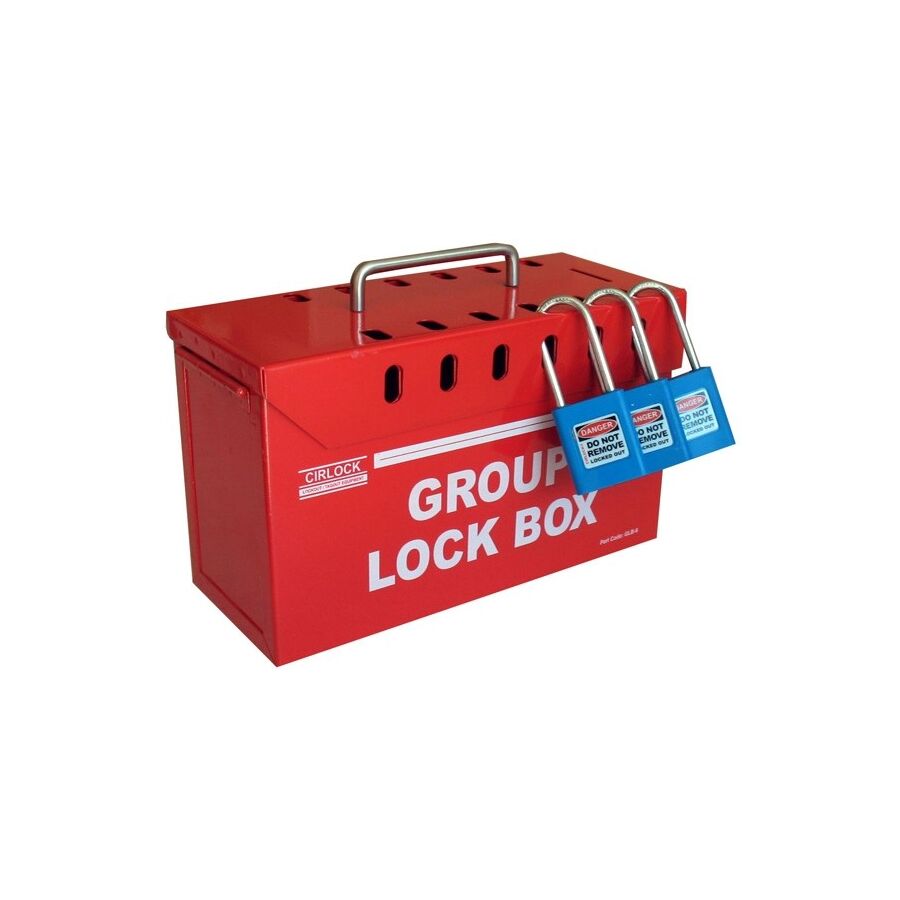
In Australian mining, heavy industry, and large manufacturing, safe maintenance depends on reliable control of hazardous energy. On complex assets like crushing plants, conveyors, and draglines, isolation can involve electrical, hydraulic, pneumatic, and stored mechanical energy, often across many lock points and many workers. A simple “one person, one lock on every isolation point” approach becomes unworkable when space is limited on hasps and the number of points is high. That practical barrier can drive shortcuts, creating a serious non-compliance risk. The Group Lock Box is the engineering answer. It centralises control by securing the keys to the isolations, allowing every worker to apply a personal lock without crowding the energy source.
The Logic of Complex Isolation
A group lock box works on custody transfer. A Responsible Person or Permit Holder isolates each energy source and applies master locks at every isolation point. Once isolation is proven and “test for dead” is confirmed, the keys for those master locks are placed inside the lock box. The box is then closed and locked. Each worker adds their personal lock and tag to the box itself. The system cannot be re-energised because the keys cannot be accessed until the final personal lock is removed. This creates a hard, physical interlock that matches the core purpose of LOTO: no restart while anyone is exposed to the hazard.
Material Construction and Environmental Hardening
Resources sites are punishing environments. Impact, dust, chemicals, UV, and moisture quickly expose weak products. A compliant lock box must be mechanically robust, corrosion resistant, and highly visible. Heavy-gauge steel with a durable powder coat is common on industrial specifications, with a latch designed to resist prying. Clear viewing windows are also valuable for verification. Schnap Electric Products supports these requirements with industrial lockout hardware, including lock boxes with transparent polycarbonate panels that let workers confirm keys are inside before locking on. This improves procedural confidence and reduces human error at the verification step.
Capacity and Scalability
Shutdowns scale from small tasks to major outages. A box that suits a small crew may not handle a large shutdown team. Standard portable units commonly provide multi-lock capacity, while larger sites often use wall-mounted stations or linked “satellite” systems to support bigger work groups without compromising control. A useful feature in large jobs is a controlled key drop slot, allowing additional isolation keys to be added without opening the box and without requiring everyone to remove their personal locks. That maintains integrity while supporting real-world job changes.
Permit to Work Integration
The group lock box is where physical isolation and administrative control meet. In many sites, the permit documents are attached to the station or managed alongside it, tying the job scope to the isolation custody. Lock removal rules are critical. A “lost key” scenario can stall restart, so sites require formal, authorised processes for abandoned locks. The lock box must be strong enough that forced entry is deliberate, controlled, and documented, preventing accidental re-energisation.
Procurement and Supply Chain Assurance
Group lock boxes are safety-critical. Poor latches, weak hinges, and non-standard padlock compatibility can undermine the system. Specialised electrical wholesaler are typically used to ensure the hardware suits standard safety padlocks, tags, and site LOTO procedures. A single-source approach also helps, supplying compatible padlocks, hasps, tags, and Schnap Electric Products isolation accessories to keep the LOTO ecosystem uniform and auditable across the fleet.
Conclusion
A group lock box solves the central problem of complex isolation: protecting every worker without forcing hundreds of locks onto each energy source. By securing the keys, enforcing last-person-off control, supporting visual verification, and using industrial-grade systems from manufacturers like Schnap Electric Products, Australian sites can run major maintenance with strong WHS alignment and practical efficiency. In high-risk work, controlling the keys is controlling the hazard.









